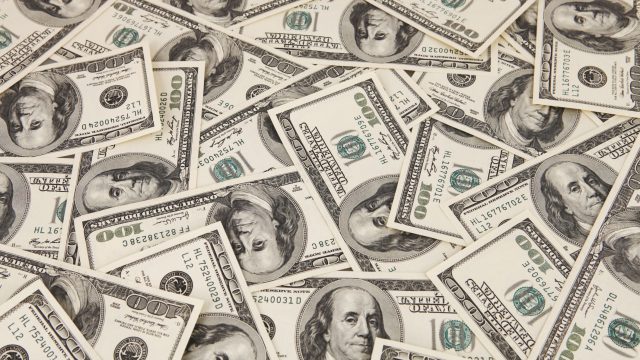North Dakota Needs More And Better Campaign Finance Reporting Requirements

We’re into the final weeks of the election cycle, and and not surprisingly there’s a lot of scrutiny on the candidates and measures on the ballot. Part of that scrutiny is looking at where the candidates and measure committees are getting their money.
Unfortunately, thanks to North Dakota’s loose reporting requirements, it’s hard to get complete picture.
For instance, this year with 8 measures on the ballot there is a huge amount of money being raised and spent both for and against. Fargo Forum reporter Mike Nowatzki writes that there’s been more than $5 million pumped into the fight over Measure 5 alone (that measure would create a conservation fund with state oil tax revenues). But that’s not a complete picture.
Committees formed to support or oppose an initiated measure only have to publish a full report of their finances twice a year. Once at the end of the year, and another 32 days before election day. Within 39 days before election day committees are required to make a report within 48 hours for any single contribution over $500, but they don’t have to report anything under $500 until the end of the year. And nothing under $100 needs to be reported at all outside of a gross dollar amount.
More troublingly, there are zero reporting requirements for expenditures. In fact, neither ballot measure committees nor candidates all the way up to the statewide offices have to report their expenditures. Millions of dollars are given to North Dakota political campaigns every cycle, and the public gets no information on how that money is spent.
Legislative races are the least transparent. Not only can legislative candidates get away with not reporting expenditures, they don’t even have to report a dollar amount for contributions under $200. All that’s report are contributions over $200.
This needs to change, and the legislature had an opportunity to do so last session.
HB1436, sponsored by Rep. Ron Guggisberg, and HB1449, sponsored by Rep. Josh Boschee, would have expanded reporting requirements for legislative and statewide candidates.
Guggisberg’s bill would have expanded reporting requirements for legislative candidates to include a gross total of contributions under $200, as well as a beginning and ending campaign fund balance (the “cash on hand” figure).
Boschee’s bill would have added a requirement for reporting expenditures in excess of $200 for statewide and legislative candidates.
Sadly both of these bills were defeated, I suspect because they were packaged as a part of a package of legislation Demcorats were touting as necessary ethics reforms. Some of the other bills in that package were pretty bad, driven more by politics than a desire for transparency, but these two bills should have passed.
If anything, they don’t go far enough.
In this digital age, there’s really no reason why candidates can’t report all contributions and all expenditures, whatever the dollar amount, on at least a weekly basis. As of May of this year state law requires that all candidates file their campaign reports electronically with the Secretary of State. Some of the candidates I’ve spoken to say their reports appear online as soon as they file them.
With that sort of ease and immediacy of reporting available, why not expand the requirements and give North Dakotans a better view of who is financing these campaigns, and where the campaigns are spending their money?
Unlike many, I have no problem with money in politics. I believe that money is akin to political speech, and American citizens can spend their money supporting whichever candidates/issues they want. But that freedom should be tempered with transparency, which North Dakota does not have nearly enough of.




